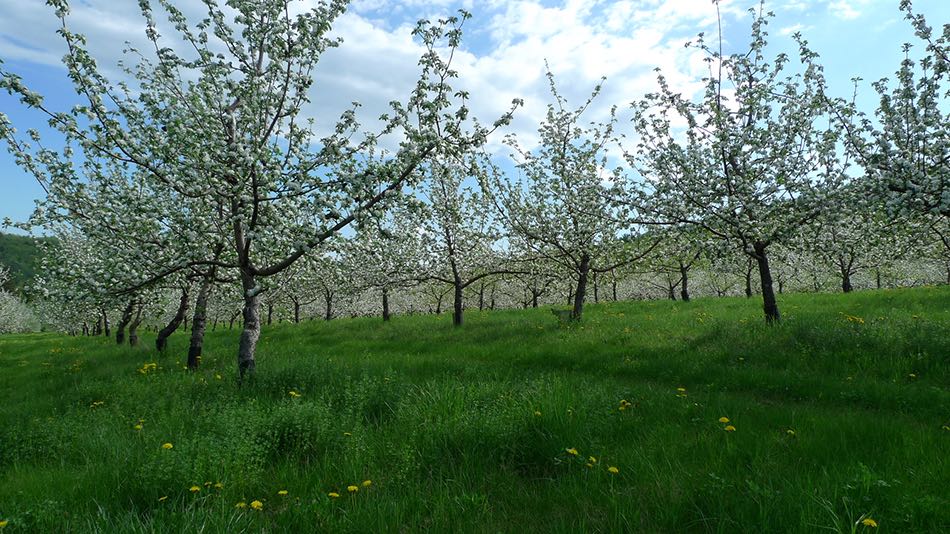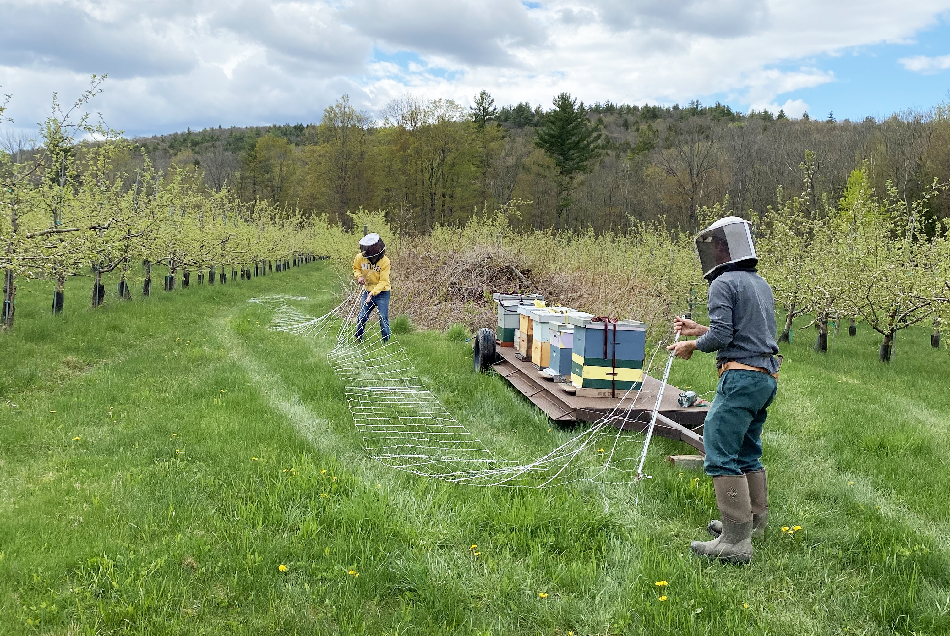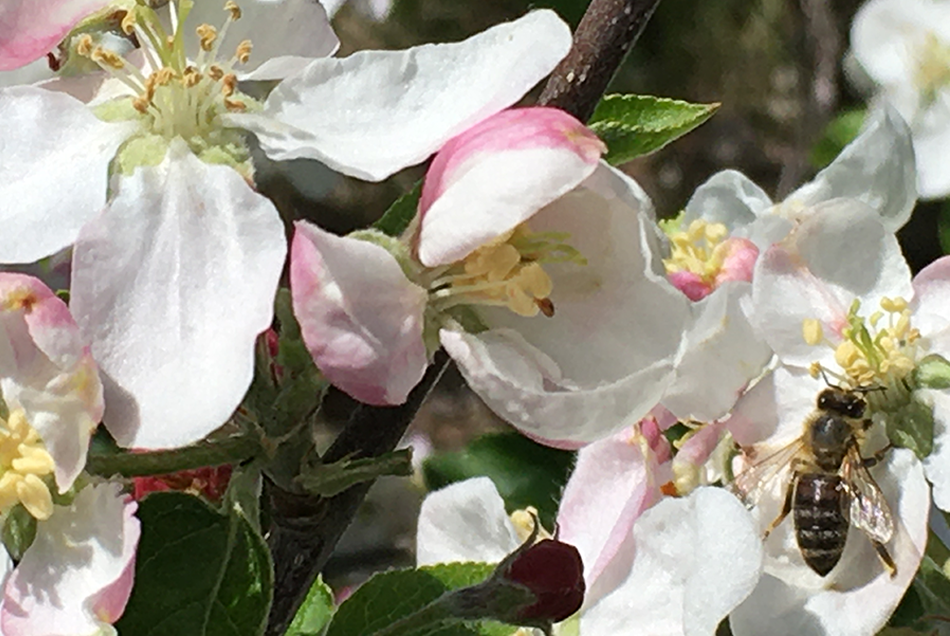
For example, DYK that most apple varieties will only produce an apple with pollen from a different variety (cross-pollination)? Imagine how many bee-visits it takes to make a crop of fruit! (Bees don't care about cross-pollination, it just happens as they gather nectar and pollen.)
So fruit growers rent honey-bee hives during the brief bloom-time, to raise the chances of a good "fruit set." Here we are very lucky to have local beekeepers with the skills to keep their hives healthy. We prize their help. Below see them setting up a solar-powered electric fence to guard the hives they just brought up the hill. Why? Well DYK that bears crave - not honey - but the bees' eggs, larvae & pupae? Collectively called "brood," immature bees are extremely nutritious. That Winnie the Pooh guy is the only bear who's in it for the honey. Bee-stings won't change a real bear's mind, but this little fence is persuasive yet harmless.

Another DYK - Within a hive, there's a whole distribution and processing system for nectar and pollen. Hive organization sustains the workers while they raise the next generation and store food for the future. Just one job in those buzzy chambers is: condensing nectar into honey by evaporation, fanned along by wings! If you have another minute, here's a quick, mind-blowing summary of what honey bees do: https://www.keepingbackyardbees.com/the-role-of-nectar-honey-and-pollen-in-the-hive/ (Other bees have equally interesting lives, but are harder to study.) Bye for now from Farnum Hill! Wish us good weather during bloom!


